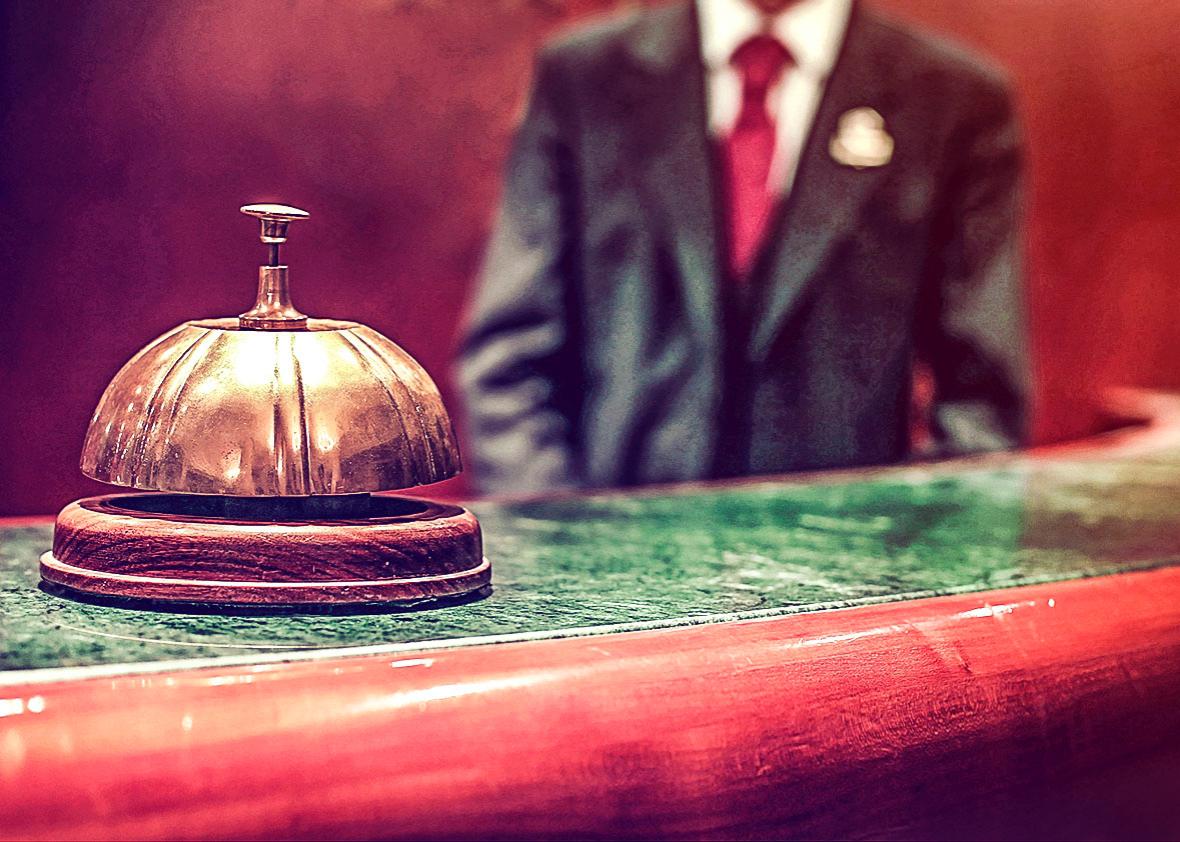In the era of do-it-yourself online booking and GPS navigation, the hotel concierge can seem like an unnecessary throwback. Who needs to bother a human for theater tickets or walking directions when you can conceivably handle all that yourself on a smartphone? But within the hospitality industry and among a certain savvy clientele, concierges—especially those employed at luxury hotels—are still revered. Members of a proud profession, they are dedicated to customer satisfaction and can draw on deep local knowledge and extensive networks to help guests with whatever they need. Concierges pride themselves on honoring and carrying forward a legacy passed down to them from the profession’s origins in the great hotels of Western Europe. So who was the first modern concierge?
The answer depends on the geographical boundaries within which it’s asked. If you mean the first modern concierge in the world, we can refine to the level of region but not individual. Modern is an important qualifier here as well, because one could trace the history of a person designated to assist in the comfort and management of guests back to at least the medieval position of the comte des cierges, or “keeper of the candles,” a staff member who would provide castle residents and visitors with guidance and access. Additionally, apartment buildings in France traditionally featured a live-in employee with the title concierge or portier who acted as a sort of building manager.
The hotel concierge as we know him now emerged in the mid-to-late 19th century alongside the rise of leisure tourism, Europe’s grand hotels, and the multiyear, multicity spectacle of travel and self-education known among those wealthy enough to undertake it as the “Grand Tour.” Fancy visitors to the continent’s notable cities would need help getting oriented and making the right local connections, and so the position of hotel portier (later, concierge)—a kind of multilingual, all-purpose personal secretary—was developed. The Swiss achieved particular renown for their work in this area, and they eventually brought their practices to France and other neighboring countries. Hence, the first modern concierge (or set of them) was likely of Swiss origin.
The concierge profession experienced a leap toward formalization in 1929 when Pierre Quentin, a concierge at the Hotel Ambassador, organized a meeting of a handful of fellow concierges in Paris to network and discuss best practices. The meeting was so productive that a professional society, Union Professionnelle des Concierges des Grands Hotels, was formed among primarily French colleagues to aid in resource and knowledge sharing. This organization persisted through World War II. One of those in attendance at the initial meeting, Ferdinand Gillet, himself of Swiss origin, would go on to be the first president of a pan-European professional society of concierges, founded at a “congress” in Cannes in 1952. The organization went international in 1970, taking the name Union Internationale des Concierges d’Hôtels. Also known as Les Clefs d’Or (“The Golden Keys”), the organization now comprises 44 member countries and was the inspiration for the “Society of the Crossed Keys” in Wes Anderson’s The Grand Budapest Hotel.
The first modern concierge in the United States was Tom Wolfe, the chief concierge at San Francisco’s Fairmont hotel. The Fairmont became the first hotel in the country to offer concierge services when Wolfe, who had completed his hospitality training in Europe, set up a post in the lobby in 1974, where he worked until 1981. Most visitors at the time were unfamiliar with the concept of a concierge, so Wolfe found it necessary to place a note explaining his job on the desk. After a career serving in many of the world’s finest hotels, Wolfe returned to the Fairmont in 1995; he recently became the first concierge thought to use Google Glass as part of his work.
Explainer thanks Michael Romei, chief concierge at the Waldorf Astoria/Waldorf Towers in New York, Les Clefs d’Or USA, and Union Internationale des Concierges d’Hôtels.
Take the grand tour of the rest of our Travel Explainers here.
